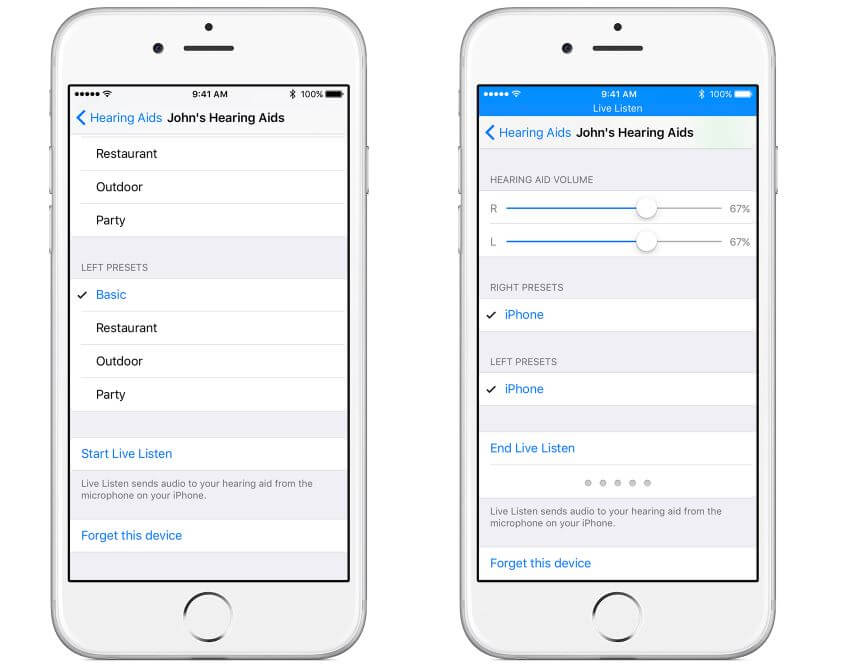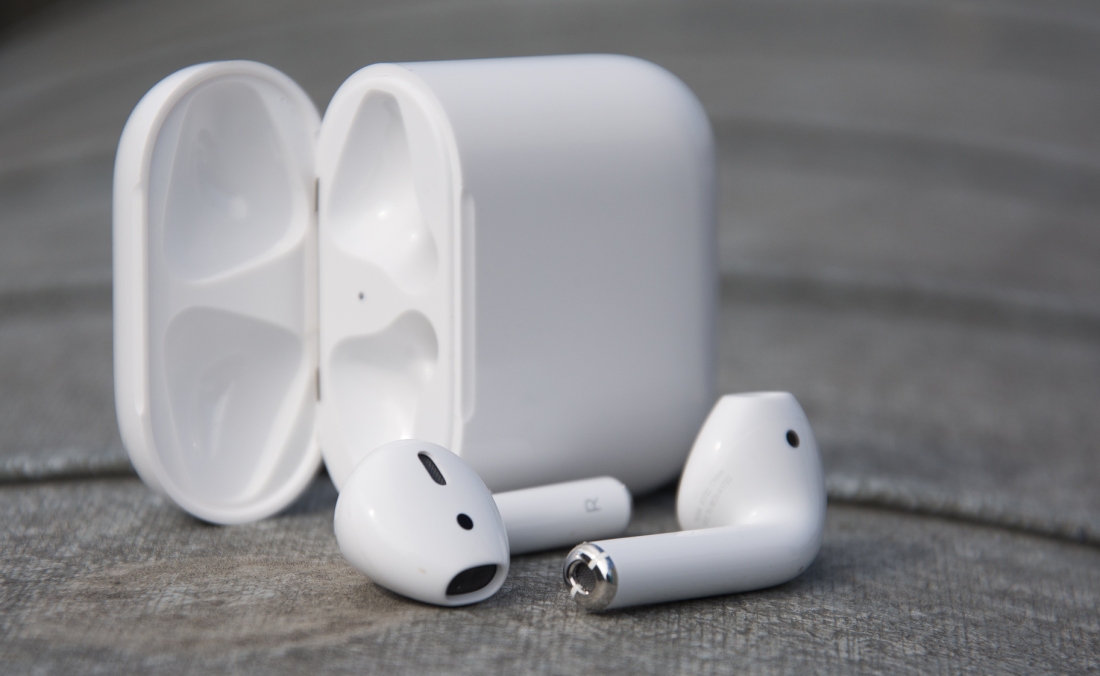The big picture: Hearing aids are extremely expensive upfront and continue to remain an ongoing cost due to replacement batteries. Apple is going to support AirPods as a listening tool when paired with an iPhone. This could be a relatively inexpensive means of hearing normal conversation, but not a full-on replacement of true medical grade devices.
Accessibility features on smartphones have gotten much better over several generations of hardware and are rarely mentioned by reviewers. Healthcare costs and medical devices have drastically increased in price despite technology improvements being made.
Apple's Live Listen feature that was notably absent from Monday's main presentation at WWDC will allow for AirPods to be used in iOS 12. Previously, only "Made for iPhone" certified hearing aids could be used with this option.
Once AirPods are paired with an iPhone and the Live Listen feature enabled, end users can use their phone as a microphone and have an audio stream delivered directly to their ears. This makes it possible to hand off an iPhone to another person so that they can speak directly into it; a useful ability in loud environments.

Even though Live Listen was originally created in 2014, the inclusion of support for AirPods is a welcomed change. As one of the most popular tech gifts this past holiday season, the wireless earbuds are clearly priced at a point where consumers are willing to buy them just because there is a want, not a need. A relatively affordable assistive feature could be a compelling reason for many to consider Apple's products.
Hearing aids can cost thousands of dollars while AirPods have a base price of $159.99. Clearly there are major differences in the technologies being used and AirPods are not a replacement for dedicated hearing aids, but the ease of access and rechargeable batteries certainly have a valid place in the market.
